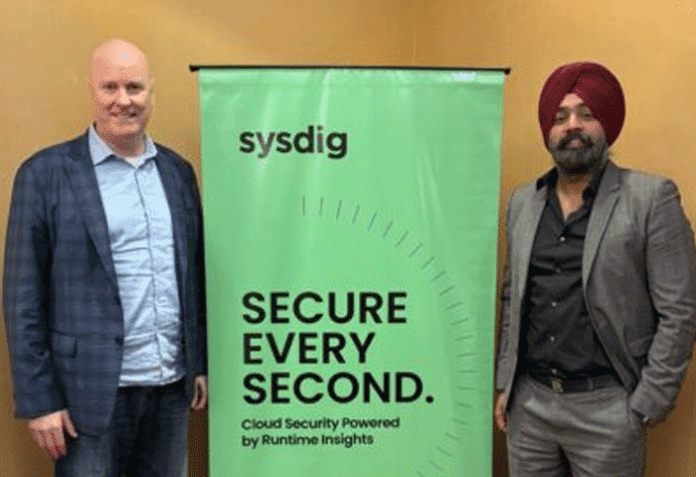Eyeing India’s growing DevOps and DevSecOps capabilities, Sysdig plans to expand its operations to India via a localised AWS data centre.
With India’s cloud market projected to reach $17.8 billion by 2027, Sysdig is reaffirming its commitment to the Indian market by expanding its operations and deploying its cloud-native application protection platform (CNAPP) via a localised AWS data centre.
With this addition, Sysdig now operates across seven global SaaS regions, complemented by in-region customer support and partnerships with leading Indian consulting firms and resellers.
Commenting on what propelled the move, Gavin Selkirk, General Manager, APAC and Japan, told OSFY, “India is becoming a DevOps and DevSecOps country from a technology standpoint. Companies like AWS, which is our cloud partner, host our environments. Andy Jassy got it quicker than anyone, investing billions here 10-12 years ago. It’s clear why our organisation is investing in this wonderful market.”
In early 2024, it was reported that attackers used exposed credentials to infiltrate cloud environments, maintain persistent access, and execute further attacks. The compromised credentials were often obtained through phishing campaigns, where attackers created convincing fake login pages to trick users into divulging their passwords. This method allowed the attackers to bypass security measures and gain entry into cloud infrastructure, often targeting platforms like AWS, Azure, and Google Cloud.
The breach highlighted the importance of securing credentials and strengthening identity management practices, such as multi-factor authentication (MFA), regular monitoring of login activities and security audits to ensure that cloud environments are configured securely to prevent such intrusions. Cloud network security platforms are designed to secure applications built and run in cloud environments. Generally, most integrated solutions provide security across the entire lifecycle of cloud-native applications, from development to production, through container security, cloud security posture management, infrastructure as code scanning, and runtime protection.
Stressing the need for cloud-native security solutions in India, Simarpreet Singh, Regional Sales Director, India and SARC, said, “The public cloud market in India is projected to grow from $4 billion in 2020 to $10.8 billion in 2024. Security spending is around 10-13% of IT spending, making it a $1 billion market. Government initiatives also strongly support cybersecurity. India is also the second largest container market, after the US.”
Sysdig’s platform detects and mitigates threats in real time, addressing the increased speed of cloud-based attacks. It provides visibility across cloud services, including containers, Kubernetes, cloud logs, trails, Linux and Windows servers, and serverless environments, eliminating bottlenecks caused by legacy security tools. The threats are prioritised based on the risk amount, with the most critical fixes holding priority. The company said that the system detects and alerts on threats anywhere in the cloud fabric “within two seconds”, using open-source Falco to identify changes across environments instantly.
“Our platform, Falco, is the de facto standard for cloud threat detection and response. With over 120 million downloads, it is an open-source, rules-based engine constantly updated by customers. It effectively addresses use case problems like crypto-jacking,” said Selkirk, while explaining how the platform resolved threats that could arise with the latest advancements in AI and LLMs.
Falco is an open-source runtime security tool for containerised environments, Kubernetes, and Linux. Initially developed by Sysdig, Falco is now part of the Cloud Native Computing Foundation (CNCF). It is a security monitoring tool that detects unexpected behaviour and suspicious activity in real time, providing alerts for potential security breaches or policy violations within your containerised applications and infrastructure.
“Since we created Falco, it gives us a head start. Our threat research team constantly updates and adds value to our commercial system product, which embeds Falco’s engine. Unlike competitors with black box solutions,” Selkirk emphasised that, “open source contributions enhance our offerings.”
The company viewed India as a significant market and mentioned engaging with government and large enterprise customers to distribute its solutions. “Our strategy includes three core markets: ANZ (Australia-New Zealand), Japan, and India. India currently represents about 20% of our ARR and is projected to be 50% of our new license bookings over the next 12 months,” Selkirk elaborated.
Stressing the importance of channel partners for its business expansion, Singh added, “All our transactions in India go through channel partners. Our India business is fully channel-focused. We work with large SI companies, value-added distributors, and numerous partners.”










































































